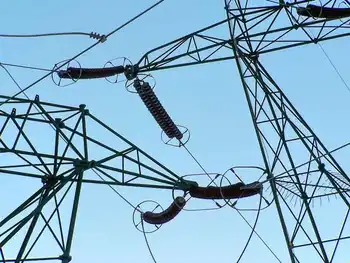Study urges re-commissioning Filipino nuclear plant
By Industrial Info Resources
CSA Z463 Electrical Maintenance -
Our customized live online or in‑person group training can be delivered to your staff at your location.

- Live Online
- 6 hours Instructor-led
- Group Training Available
Napocor and KEPCO signed an agreement at the end of last year to investigate the possibility of rehabilitating the power plant, which was mothballed by the Philippines government in 1986 because of safety concerns.
KEPCO delivered the preliminary results of the study to Napocor, with the conclusion that it would be possible to revive the plant. However, at this stage, KEPCO has not given an estimate of the costs involved. Under the agreement with Napocor, the cost and likely time frame for rehabilitation will be delivered by January 2010, in time for a presentation to the Napocor board.
Napocor had earlier suggested that it would cost about $800 million to rehabilitate and operate the Bataan plant. Re-installation of transmission lines, which were dismantled when the plant was mothballed, is likely to bring the cost up to about $1 billion.
Depending on the estimates given by KEPCO in its final report, Napocor will decide whether to proceed with the rehabilitation of the plant or build a new facility instead. However, there has been considerable criticism of the possible reopening of the plant, both from groups in the Philippines and environmental organizations such as Greenpeace. Suggestions have been made that some of the cost of rehabilitation could be met by a power supply surcharge to customers, which has led to further criticisms of the plan.
The Bataan plant was originally constructed during the regime of President Marcos in response to the Middle East oil crisis. Construction began in 1976 and the power plant was designed to use a light water reactor supplied by Westinghouse Electric Company LLC and deliver 621 MW of electricity. However, following the nuclear accident at Three Mile Island in the United States in 1979, construction was halted and a safety review instigated.
The review revealed more than 4,000 defects in the plant, and concerns were raised that the site was located close to major geological fault lines and the Pinitabu volcano, which was dormant at the time. However, despite these concerns, construction was recommenced. By 1986, when the plant was almost completed at an estimated cost of $2.3 billion, the Marcos regime was overthrown. Following the Chernobyl nuclear accident in Ukraine, the Corazon Aquino administration decided to mothball the plant.
The Philippines economy is based heavily on imported energy sources and fossil fuels to meet the power demands of the country. However, the country is attempting to move toward a more renewable energy mix and estimates that renewable energy sources could contribute as much as 55% of its power requirements until 2030. However, the remaining 45% needs to be filled by a reliable energy source, and for the Philippines this includes nuclear power.
To further investigate the possibility of developing nuclear power generation capacity, the Philippines government has formed the Inter-Agency Group on Nuclear Energy, which will work closely with the International Atomic Energy Agency to develop a nuclear power program for the country.











